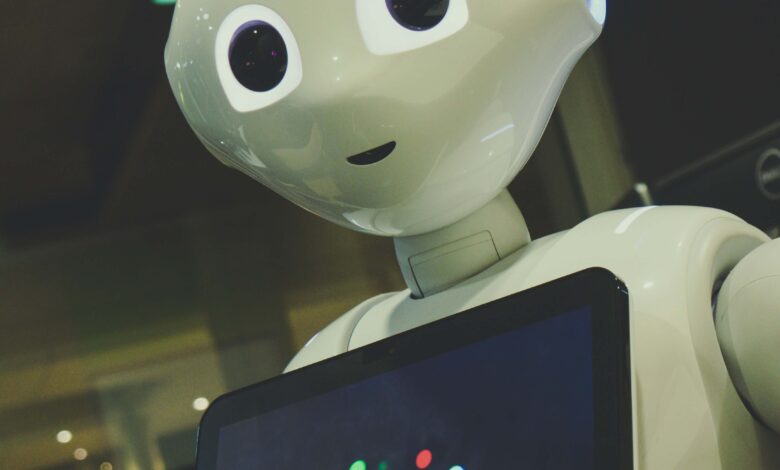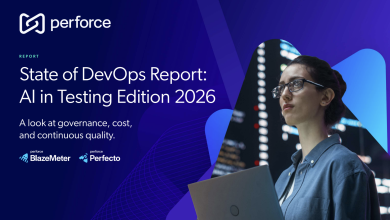
Hospitality is built on connection. It’s about smiles, eye-contact and effortless rapport; being friendly and warm to your guests. But this deeply human experience faces an unsettling challenge: artificial intelligence. While a robot bellman might be able to handle bags, and sure, it would be a novelty, but it’s never going to connect a guest to the property, or their vacation, the same way a person can.
The technology just isn’t there yet. More importantly, it feels impersonal. The biggest danger presented by AI in hospitality, is alienating guests. Adopting a hybrid approach and using AI to make humans more effective, is the strategy the hospitality industry should be following, rather than trying to replace humans.
I don’t think on a wide scale basis, people are going to abandon the need for human service. Because, in doing so, you’ll lose the essence of hospitality. Any utility can be automated, but hospitality isn’t a utility. That’s the core principle that should guide our approach as we explore the AI revolution.
AI as a Partner, Not a Substitute
In hospitality, the real value lies not in automating human interactions out of existence, but in using AI to enhance the guest experience, through the staff that are already there. There aren’t a lot of companies out there that are taking that approach to say, let’s augment human performance with AI tools, rather than let’s replace humans with AI tools. The differentiators in this industry will be the hotels that don’t make that trade off. The winners will be the ones who use AI to make their operations more efficient while preserving the human element at their core.
There are hotels around the world that now operate entirely without staff, and honestly, I find that creepy. These properties use cloud-based systems where guests check in online and receive a PIN to access both the hotel entrance and their room via their smartphone. Food orders or amenity requests are all handled through a mobile app. One extreme example is the Henn na Hotel in Nagasaki, Japan, (Henn na means ‘strange, weird or odd’ in Japanese) which was billed as the world’s first hotel staffed primarily by robots.
Guests are welcomed by robotic concierges, (including a velociraptor dinosaur, humanoid androids and a one-armed claw was put in charge of left luggage), check in via touchscreen kiosks, have their luggage delivered by automated trolleys and access rooms using facial recognition. Interestingly, it was reported in the press that the hotel “fired” over half of its 243-strong robot workforce following complaints from customers. Which brings me on to my next point, what happens if something goes wrong or the power goes out? And there’s no one to call, what are you supposed to do?
You’re abandoned. When a guest situation is going wrong and there’s something breaking down. I would not rely on AI. That’s where a human really must step in and deal with the deficiency, whatever’s happening.
Don’t Give AI the Keys to the Safe
I think the more productive use of AI tools in hospitality is to automate the mundane, repetitive tasks that don’t directly benefit the guest. For example, I wouldn’t put Agentic AI in exclusively or autonomously in charge of the flow of money. AI makes weird decisions sometimes, and they’re inexplicable, and we don’t know why. So anything that could negatively affect the guest or the security of a company, I wouldn’t have Agentic AI involved.
But things such as: towel replenishment, ordering soap, inventory controls, I think AI agents are going to become extremely useful, very quickly. Still, for anything that could negatively affect the customer or guest journey, or negatively affect the security of the company, I don’t think it’s there yet. AI replacing humans is happening already, especially in phone-based or online booking systems. Live chat, for example, is pretty much already automated.
And with the rise of new voice technologies and large language models (LLMs), I think we could see call centers become completely automated too. But on-premise? I don’t think people are ready to give up the face-to-face interaction. Unfortunately, too many see AI as a replacement for people, not a tool to augment human performance.
That’s a mistake. What happens when one company dives into AI and another doesn’t? If there’s guest backlash, and there will be, the company that preserved the human touch wins market share. The guest-facing roles, like concierge or front desk agents, are experiential.
Strip that away, and what’s left? There’s also a psychological cost. It’s called the Uncanny Valley, a term used to describe the discomfort people feel around machines that are almost, but not quite, human. Think humanoid robots with artificial faces.
They trigger a weird, visceral reaction. That’s why the Tesla robot has no face, you can’t have an empathetic, emotional experience with a robot with no face, we’re a generation away from that being a reality.
The Human-AI Partnership in Practice
There’s a lot of hype out there, but AI today works best as an advisor to humans, not a replacement. That’s the guiding principle behind the AI capabilities we are bringing to market. We will use AI to identify the right offer and price, presenting it to the front desk agent, not the guest, with our proven dialogues recommended. It’s not about automating the offer.
It’s about leveraging the power of AI to inform the agent on how to best engage, using our proprietary knowledge of guest interaction. We’re designing AI to support staff situationally. Ideally, we move beyond overt prompts, toward an AI that’s always tuned in, able to detect the right moment to offer advice, and seamlessly integrate into human workflows.
Guests Still Prefer Human Check-In
The question surrounding mobile and AI check-in, is one I’ve had to answer countless times over the last decade. I went back and looked at data from two major hotel brands after they rolled out direct-to-room tech years ago. Here’s what I found: While absolute usage of mobile check-in has increased (along with overall growth), the percentage of guests choosing it has remained stagnant, around 8%.
Even with aggressive promotion, adoption has plateaued. And even if that number doubled to 20%, that still leaves 80% of guests choosing in-person check-in. That’s why we’re not worried. In fact, from our standpoint, we only need a 5% conversion at the front desk to make our program successful.
Mobile check-in, AI-powered or not, isn’t an existential threat to front desk engagement. Because at the end of the day, our core value lies in knowing how to motivate front desk agents to sell, and that’s not something AI can replicate. This reinforces that AI in hospitality must serve as a complement and not a replacement, for real human interaction. This article from Boston Hospitality Review presents a study comparing guests’ expected use of hotel amenities, including mobile check-in, with their actual usage. Over 80% expected to use auto or mobile check-in, but actual usage was as low as 2% in suburban hotels and even less in other property types.
Balancing Automation and Empathy
I think it’s important to recognize that while there are hundreds of AI companies out there now, most of them are fundamentally built on just a few core language models, like ChatGPT or XAI. The balance, in my view, is going to be in their application. One example I find really compelling is HeyGen, along with InVideo as a competitor. These tools are particularly interesting because they’re able to bridge the gap in for eg., training scenarios.
Real humans can become avatars, real voices can be modeled and the resulting content sounds and looks real, it’s not creepy or unnatural. Looking ahead, I see the future in a hybrid model, where AI assistants, eg., Microsoft Copilot or Google Gemini, are aware of what’s going on in your immediate environment and can offer input when asked. That’s what will really supercharge human capability. It’s like having Einstein, Gandhi and Confucius waiting there to give you advice, with context to what’s actually happening in the moment.
That’s the big breakthrough I believe will bring AI fully into the human realm. Yes, AI has an important role to play. Yes, automation can enhance efficiency. But let’s not lose sight of what hospitality is about.
Leaning too much on AI in hospitality or hiding behind it, risks losing hospitality’s soul: human warmth, personalized service and the all-important emotional connection.




